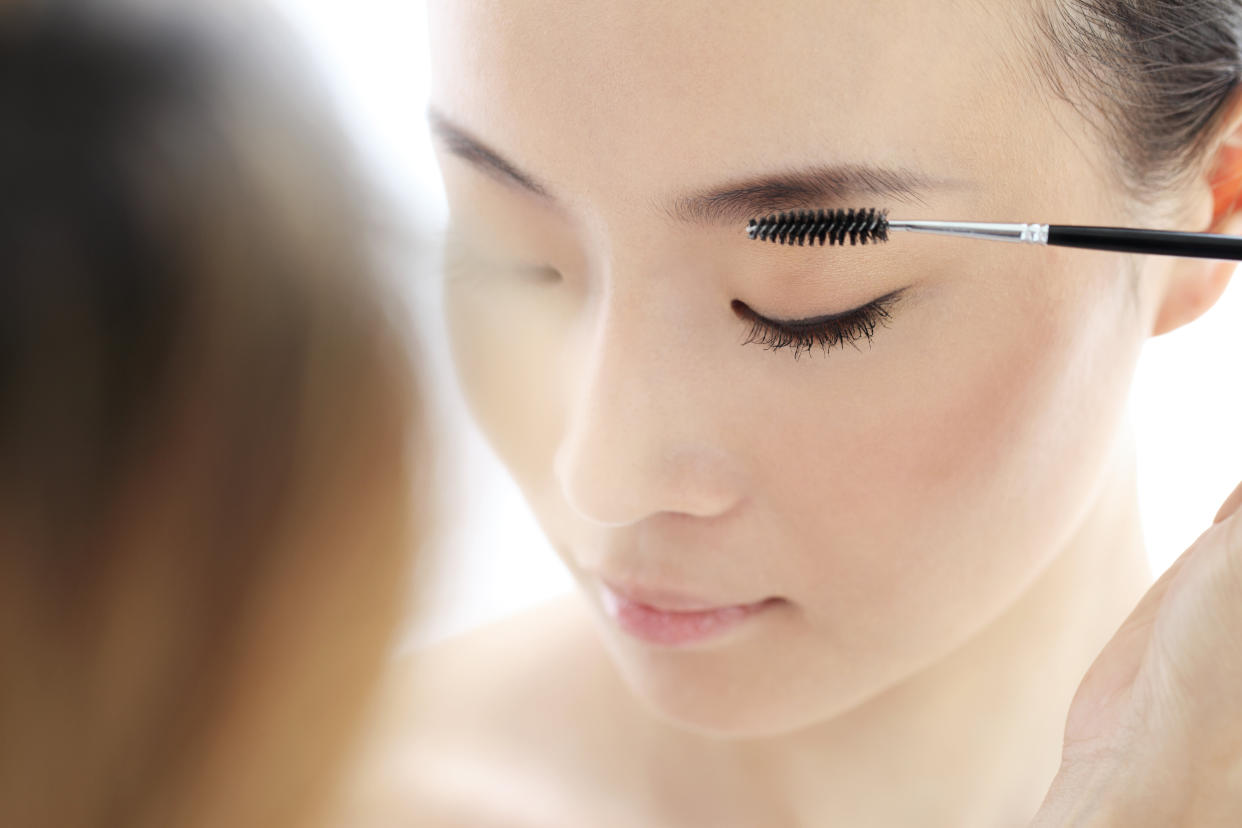A realistic guide to cleaning your makeup brushes

SINGAPORE — Hello, my name is Simone, and I haven’t washed my makeup brush for six months. (I can picture my friends in the beauty industry screaming “Shame!” in my face.)
As much as I love makeup brushes, I find it a chore to clean makeup brushes. Yes, I know about the bacteria and how it can affect my skin. However, seeing that my skin is still fine, I would almost always drag out my brush-cleaning schedule, and end up washing them after a month or two. The longest gap was about six months, and I’m not proud of it.
READ MORE:
The right way to use face mists on long haul flights
Fashion blogger Nicole Andersson to host DIVA's 'Style Me Now'
One fine day, after around six months, I decided that it was time to get my makeup brush cleaned. I would first soak a water-based, soap-free wet wipe with the Make Up For Ever Instant Brush Cleaner solution, and rub the brush bristles against it to remove any foundation built up. Then I would wet the brush bristles with tap water before adding a pump of baby shampoo for a deeper clean. After rubbing the shampoo into the brush, I would rinse the bristles. And I would repeat this process, usually around three times, until the water runs clear.
However, this time round, no matter how much baby shampoo and rinsing I did, the bristles can’t seem to get cleaned. The hardened foundation at the bristles nearest to the handle didn’t budge at all. I freaked out a little, put my beauty-editor ego aside and made some calls. Thankfully, it was not the end for my dear makeup brush.

How To remove hardened makeup from makeup brushes
“Saturate your brush in the foam created using brush cleansers like the 13rushes Marvel Bar. This would allow time for the surfactant to work into the bristles, and soften and break down the makeup product. Then, massage the bristles; imagine you are giving them a luxurious hair wash,” says makeup artist Larry Yeo.
If you prefer not to buy a product just to clean your brushes, you can also use micellar water. According to Tay Yuhui, founder of six-year-old Singapore cruelty-free makeup brush brand 13rushes, you can also “dip the bristles in a small cup of micellar water and gently swirl to remove any residual makeup. Keep the brush handle away from the micellar water as the solution can corrode the paint on the handle, causing it feel “sticky” after. Then, wash the brush as usual, either by rubbing the bristles against a bar soap, or with your favourite liquid cleanser. You can use a silicone brush cleansing pad for this step which would help to speed up the cleaning time.”
However, you should not keep washing your makeup brushes this way. Larry cautions that the cleaning agent will break down the glue that holds the bristles to the brush handle, and this would damage the brush, reduce product efficacy and shorten the lifespan of your makeup brush.



How often to wash makeup brushes
To maintain brush quality and avoid situations like mine, “wipe your makeup brush with tissue to remove excess product after every use, and wash them at least once every two weeks,” advises Nancy Woo, Shiseido’s Regional Training Director.
Personally, Yuhui washes her brushes after every use. She laughs and says that you don’t have to follow her example. “If you use cream or liquid makeup products, I’ll recommend spot-cleaning (wiping with tissue) the brushes at least once every two uses to prevent products from building up in the brush. After one week, wash the brush thoroughly. For powder based products, you may wash the brushes once every two weeks.”
That’s not all. If your skin leans on the oilier side, Larry advises that you wash your brushes every three days because the bristles will pick up sebum from your face as you apply makeup. If you have dry skin, you can get away with washing the brush once a week.

Makeup brushes can’t last forever, but maybe for 15 years
There are many factors that affect the lifespan of a makeup brush. “Most brushes in the market are held together by glue. These adhesives will deteriorate over time, and become more unstable with exposure to heat, humidity and oxidation. This leads to shedding and detachment of brush handles,” says Yuhui.
The longevity of a makeup brush also depends on the frequency of use, and how often you wash them. “Generally, a frequently-used good quality brush can last at least five years with proper care. My oldest brush is currently 15 years old and still functional!” chirps Yuhui.
Larry adds, “Good quality makeup brushes handmade by trained (brush) artisans are built to last. I have old M.A.C, Prescriptive and Shu Uemura brushes from the mid-2000s; these were made in Japan, France or Germany, and they are still working great.”
Other than a well-made brush, synthetic brushes tend to have a longer lifespan than animal hair bristles because the latter, like human hair, frizzes and breaks over time.
Stick to the cleaning plan
I found Yuhui’s 15-year record aspiring, and even considered breaking it (who am I kidding?) Baby steps, Simone. Back to my gross brush. For my makeup brush with the six-month-old hardened makeup residue, I used the last of my Bioderma Sensibio H2O Make-up Removing Micelle Solution to remove the stubborn, dried-up foundation stains. And I am relieved to report that it worked. The whole process was very time-consuming, and I reckon it would take less time to wash and dry my brush if I had cleaned it regularly. So, here’s to a better use of time. Long live my brush!


